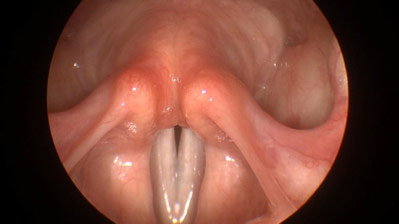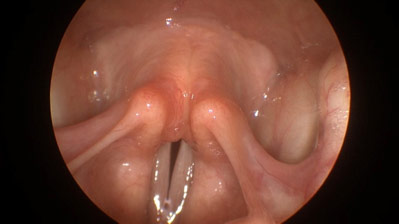- Question: How do the ingredients in e-cigarettes and vaporizers affect respiratory health? - August 16, 2019
- Bad Technique and Vocal Injury - January 9, 2019
- Is Edible Marijuana Dangerous for the Voice? Myths Dispelled - December 18, 2018
- Surprise! You have a hemorrhage - January 31, 2018
- Graves’ Disease: Treatment Overview - September 25, 2017
- Adele and the Stigma of Vocal Injury - July 11, 2017
- Vocal Curbside Consult: How does the thyroid affect the voice? - May 16, 2017
- Vocal Curbside Consult: How do hormones affect the voice? - May 3, 2017
- Vocal Curbside Consult: How do emotion and stress affect the voice? - April 17, 2017
- Vocal Curbside Consult: Vocal Recovery After Illness - April 7, 2017
 Singer Justin Bieber was recently caught with a joint in his hand. The press and his fan base made this front page news, with most expressing outrage and shock that someone who is in the public eye, with young fans, would set such an example. However, though we might like to try to pretend otherwise, marijuana is ubiquitous. The music world is no exception and Justin Bieber was simply caught.
Singer Justin Bieber was recently caught with a joint in his hand. The press and his fan base made this front page news, with most expressing outrage and shock that someone who is in the public eye, with young fans, would set such an example. However, though we might like to try to pretend otherwise, marijuana is ubiquitous. The music world is no exception and Justin Bieber was simply caught.
States such as Colorado are passing legalization laws and this simply reflects the growing acceptance of marijuana as a recreational drug.
It is important as health care providers that we accept this increasing shift and realistically evaluate the potential risks of marijuana smoking. As a laryngologist (doctor of professional voice users), it is not uncommon for me to have a patient who admits to smoking marijuana. Often they are concerned that they may be damaging their voices.
There is no doubt that smoking has a negative effect on the vocal cords, whether it is tobacco or marijuana. One question, though, is whether the vocal cord damage actually impacts the voice.
What damage can smoking marijuana do to the voice?
- Vocal cord scarring (with decreased range)
- Laryngitis
- Traumatic injuries (polyps, nodules, etc)
- Pre-cancerous changes
- Lung disease
Vocal cord scarring
While vocal cord damage does result in raspiness, this is often something singers desire. However, the rasp is due to vocal cord scarring and that this is irreversible. The scarring is also progressive so that the mild rasp of the 20 year old becomes a significantly more dysfunctional voice in the 30 and 40 year old. Years of frequent smoking will result in accumulated damage, and a singing voice that is no longer capable of producing musical range.
Laryngitis
Inhaling any kind of smoke causes laryngitis. The below videos and pictures are of a patient before and after a photo shoot where she inhaled smoke from a fog machine for only one hour.


Traumatic injuries
Laryngitis is inflammation of the vocal cords and occurs due to smoking. Swollen cords do not vibrate the way they need to for singing. Smokers’ cords are swollen but singers often “muscle through” performances despite this swelling. This overly forceful technique can result in acute injuries. The video and picture below is of a patient who smoked marijuana one time and sang afterwards. He noted hoarseness after his performance and came for an evaluation. He had a polyp that had formed from singing on cords that were swollen due to smoking.

Even if polyps don’t occur, other injuries (such as hemorrhage, nodules, and cysts) may occur when singing on swollen vocal cords.
Pre-cancerous changes
Finally, while it has not been definitively proven, there is a suggested link between smoking marijuana and cancer. Patients who smoke marijuana show vocal cord pre-cancerous changes that recur while smoking is continued and halt when smoking is stopped.
It is not practical to insist that every singer should stop smoking marijuana. There are culture and social issues that have to be factored in. It is equally unrealistic to instruct singers to not drink alcohol or smoke cigarettes or eat late at night, although all these things are known to cause vocal injury.
It is important, however, to educate the singer about ways to minimize the risk to their voice and their health. A study was done to evaluate the smoked (joint) versus vaporized forms of marijuana. The study showed significantly less toxic substance inhalation (with equal blood levels of THC) when the substance was vaporized. Though consumption (eating) the marijuana is the safest for the vocal cords, there are concerns about the awareness of the amount of marijuana eaten. Over-eating can lead to the toxic side effects of high marijuana levels.
As someone who cares for the professional voice, I recommend various ways the patient can reduce the risk of permanent vocal damage. If you are a singer who smokes (anything), it is in your best interest to establish a relationship with an empathetic and reasonable laryngologist who can counsel you about these risks and find ways to work with you to produce the vocal results you want while not completely sacrificing the activities you enjoy.
Read patient stories about Dr. Reena Gupta from The Division of Voice at the Osborne Head and Neck Institute.
To learn more about the voice, click here.




